Der Jungfrauenwahn (2015)
For young Muslims who live in a free society, how is the culture of origin of the parents compatible with their own wishes? What significance does the commandment of virginity have?
For young Muslims who live in a free society, how is the culture of origin of the parents compatible with their own wishes? What significance does the commandment of virginity have?
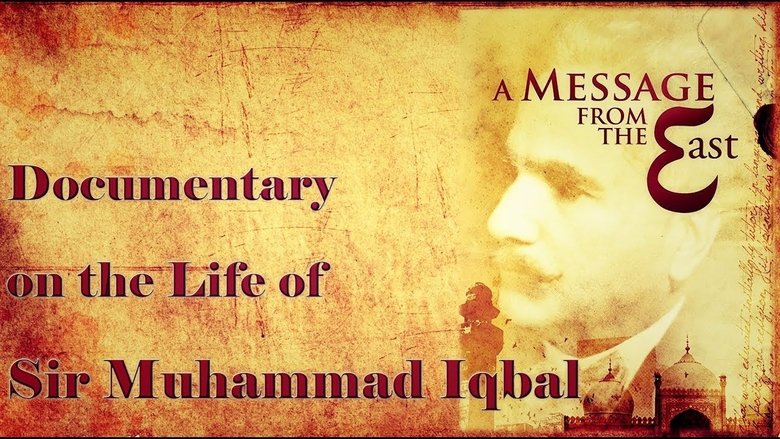
The story of Muhammad Iqbal, a turn of the century poet/philosopher from South Asia. Through Iqbal's work we open a dialog between the East and West, refute the notion of a class of civilizations and discover our shared humanity.
Irritated by Catholicism, Linda, an American-based, Blonde Caucasian, falls in love with Qater-based Ali Al-Saigel, adopts the Islamic faith, and gets married. She follows her new faith to the letter, and subsequently gives birth to seven children (four daughters and three sons), brings them up according to true Islamic dictum's, and reflects on her 20-year married life, her children, as well as her reaction when her husband indicates that he wants to re-marry.
Kurdistan, partitioned between Iran, Iraq, Turkey and Syria, could play a major role in a torn Middle East. But who are the Kurds? What influence do they have? Who exactly is Abdullah Öcalan, the leader of the Kurdistan Workers' Party? An enlightening investigation by Luis Miranda.
Looking at the consequences of first cousin marriage in Britain.

With candor, humour and courage, a group of African-Canadian women challenge cultural taboos surrounding female sexuality and fight to take back ownership of their bodies. Combining her own journey with personal accounts from some of her radiant, endearing friends, co-director Habibata Ouarme explores the phenomenon of female genital mutilation and the road to individual and collective healing, both in Africa and in Canada.
The director accompanies the German women's national soccer team.
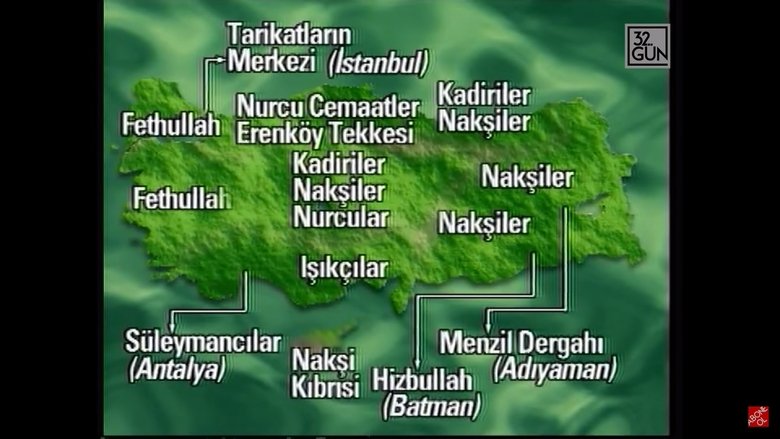
We feel as if we are discovering Turkey for the first time. All of a sudden, we came across a Türkiye with imam marriage and congregations. Actually, that Türkiye has always existed, but we seem to be ignoring it. Especially the iftar dinner given by Prime Minister Erbakan to the leaders of the sect suddenly increased the discussions even more. Sects are a danger to the Republic for some of us, and star people for peace in the country according to others. Regardless, the truth of sects is now a part of our lives. Tonight we will open a 2-part sects file. How many sects are there in Turkey? Who participates, how and why? How do they enter and what do they do? What are the advantages of being a cult member? How many members do sects have? Is Türkiye about to surrender to the sects? Here you will find answers to hundreds of more questions like these. Rıdvan Akar joined various sects. He studied the positive and negative aspects of the sects world. A beautiful file has emerged...
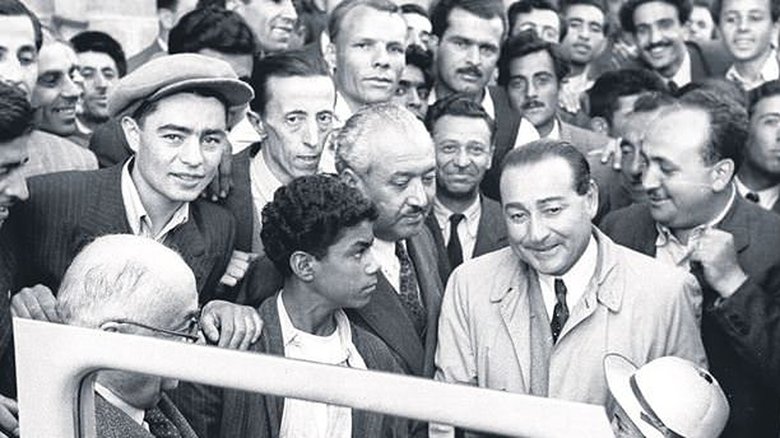
Societies, like people, have turning points in their histories. These milestones sometimes silently and spontaneously knock on the door, and sometimes they explode like a terrifying thunderclap. The year 1950 was such a turning point for Turkey. A simmering social reaction against 27 years of power erupted in the spring of 1950. Society has cracked its quarter-century shell. Not by shedding blood in the streets, but by voting at the ballot boxes. "Demirkırat" was reared by the general vote. That's why the 14 May 1950 elections were always called the "White Revolution"...
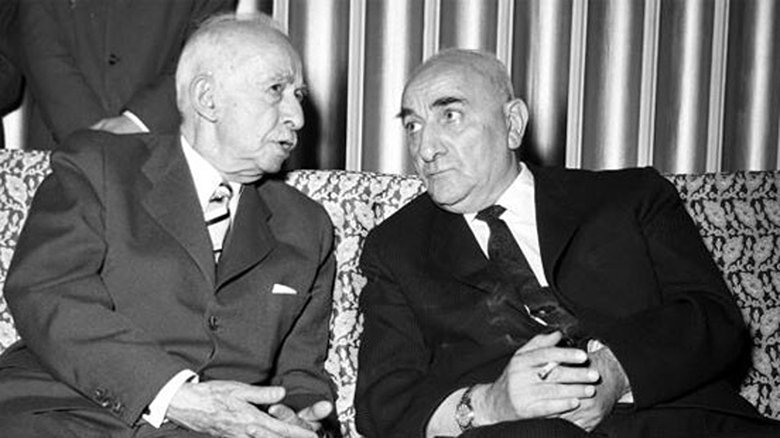
Staff Colonel Talat Aydemir... Aydemir's February 22 rebellion was the first revolutionary attempt in Turkey that faced resistance. But it was also the most dangerous... The thing the army feared most happened to him. The most undesirable possibility of the commanders in charge came true and friction broke out between the armies. At that time, the commander of 27 May, Cemal Aga, was appointed to the presidency, but the discomfort did not end. A group led by Colonel Talat Aydemir sought to intervene again. However, a part of the army, especially the Air Force, left Aydemir alone at the last moment. Talat was still strong in Ankara. In order to break this power, Prime Minister İnönü found the formula to dismiss the leaders of the rebel officers and appoint them to the East. Here is February 22, the day when these appointments will be announced to the rebels. The apocalypse was expected that day. And it broke that day...
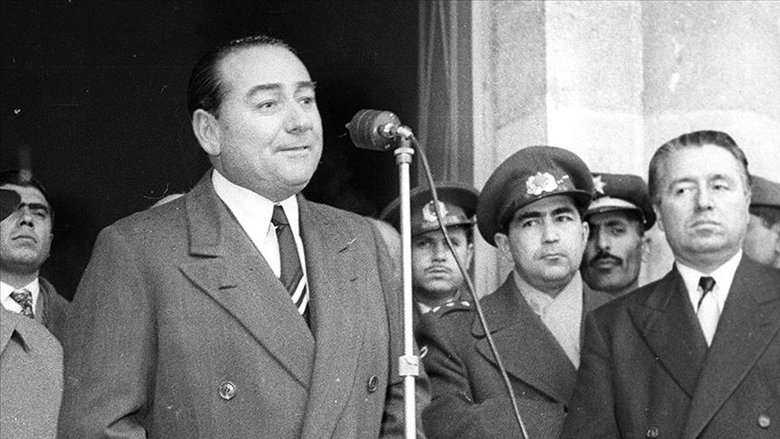
During the multi-party period in Turkey, no party could achieve the success that the Democrat Party achieved in the 1954 elections. Since those days, no party has been able to repeat the 56 percent of the DP's votes in that election. Now, 93 out of every 100 deputies in the parliament were from the DP. The DP power had reached a heavy and overwhelming majority... Menderes was at the peak of his power and prestige. But as in everything else, the highest point reached in politics was also the point where the descent would begin.
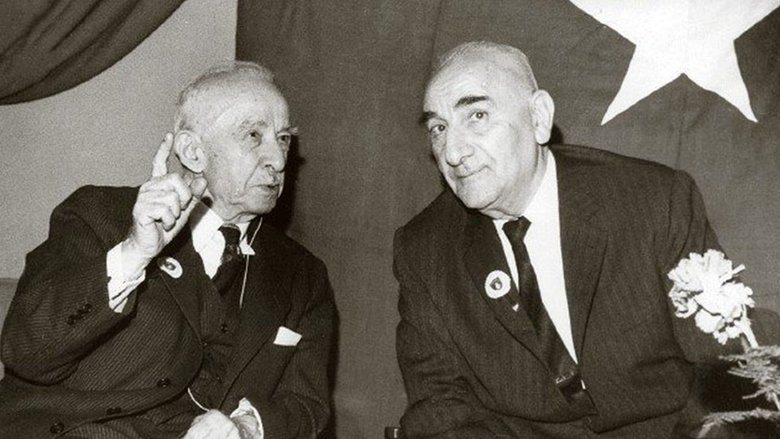
In the past, when spring came, there was a spring atmosphere in politics. But the spring of 1959 brought the CHP's spring offensive on the contrary. Seeing that the opportunity for a dialogue was completely lost after Menderes' plane crash, İsmet Pasha put on his boots in April and took his 46 deputies with him to the expedition. The chosen route was the route of the Great Offensive in the War of Independence. Uşak, where İnönü took the Greek Commander-in-Chief Trikupis prisoner, was the first stop...
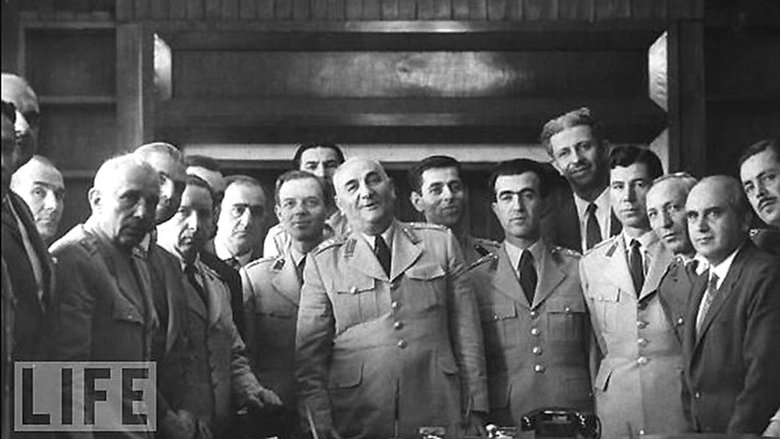
While the government was in a deep sleep, the brain staff of the revolution was completing its final preparations at the Military Academy, there were only a few hours left for the revolution that had been prepared for six years. Despite six years of preparation, there was actually no serious plan at hand. An unplanned, unscheduled full night raid was to be organized. The management level of the army was pro-government. Therefore, it was impossible for the intervention to take place within the chain of command. This was to be a grassroots military operation. The army of the operation consisted of young cadets. Except for the Harbiye, there was no force at hand. It was even possible for units such as the Guards Regiment and the Central Command to resist. That's how the day of May 27 began with the unknown and risks. Major General Cemal Madanoğlu, the commander of the Revolution Headquarters, would have the last word...
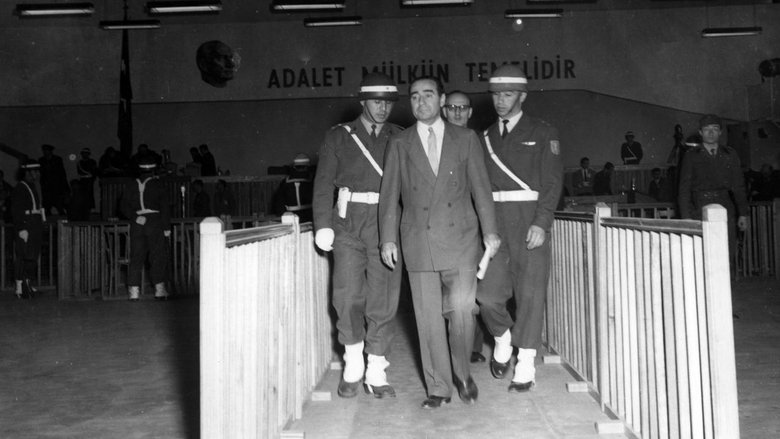
It is a famous saying: "One can come to power with a bayonet, but not sit on it." The organization, which carried out 27 May, came to power with a bayonet. Moreover, these young officers seized power that night by breaking the traditional chain of command. In the morning, a 10-year DP period was over, the support of the public was gained at first hand, and a brand new phase was reached. Now, the days that would mark the future of Turkey were beginning. Now, as those days put it, the "second republic period" was beginning.
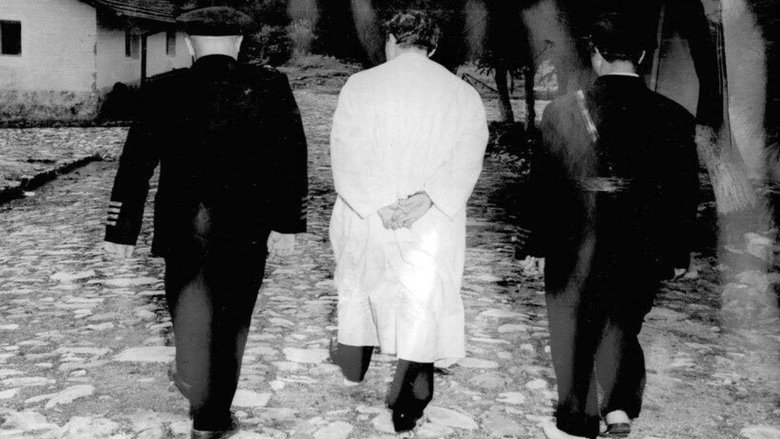
We came to the end of the road. We told you the story of the establishment of a democracy throughout 9 episodes... We witnessed the collapse of a one-party regime. We witnessed the disappearance of the national chiefdom. Together we experienced the holding of the first free general elections and the raising of democracy in pain. And finally, we told you about the birth, rise and fall of a new power. Where we ended up was a military intervention. Whatever the reasons, the storm of revolution had blown once. Now the task of the officers who seized power on the morning of May 27 was to contain that storm. But it didn't. After a while, the storm started to drag the revolutionaries in front of it. The historical scenario was repeated. The Revolution ate some of their children. The revolution was now speaking its own language...
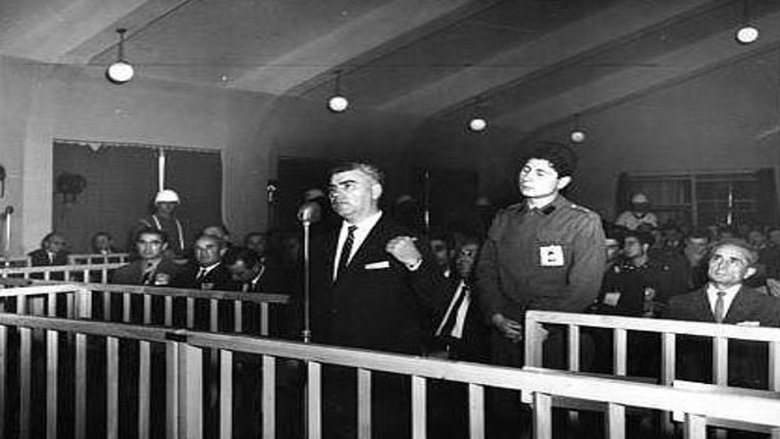
Revolutionaries passed before the streets of the 1960s on the road to democracy. Then the use of victory songs and rebellion flags, right-wingers, leftists and putschists again. The February 22nd Operation could not revolutionize, but it succeeded in overthrowing its government. Unexpectedly, because of an amnesty... İnönü kept Talat Aydemir's forgiveness by making a promise to him when he received him and drafting a law. But when this structure came to the Parliament, the AP members revolted. They also asked for the ex-Democrats to be pardoned. They said "all or nothing". It's a mess. When the AP insisted, İnönü resigned. Thus, without doing much work, Turkey's first settlement was dissolved in six months. İnönü was brought to the head of the new crime again. However, this time, EP was excluded and a second provision government was formed with CHP, YTP and CKMP. And the winds blowing from Kayseri would continue to sweep Ankara more...
Right at the heart of the debates on the discrimination of women in the film industry, this documentary raises questions, while offering a voice to women and their cinema. Catherine Breillat, Claire Denis, Mira Nair, Margarethe Von Trotta, Ulrike Ottinger, Micheline Lanctot, Rakshnan Bani-Etemad, María Novaro but also the names of the less visible directors of the general public. Joining the filmmakers are the voices and comments of producers, film specialists and archivists through whom our images are meticulously preserved.
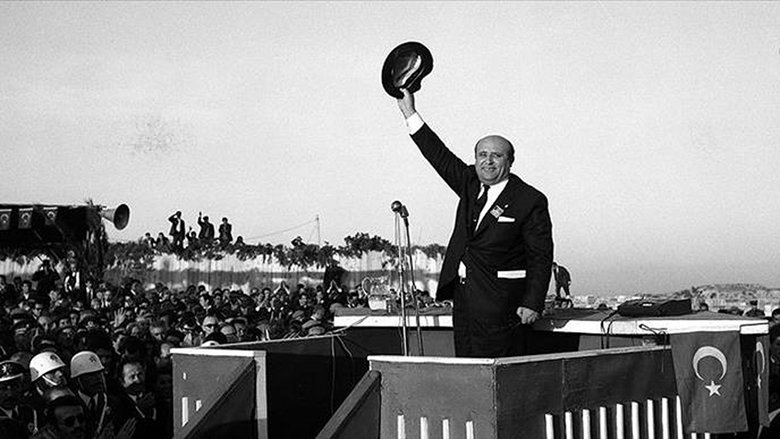
In 1965,a two-month-old leader,the commander of the Western Front, knocked down the big plane tree in a shake. One was 40, the other 80. In the last 5 years, it wasnt even possible to think of a government without İnönü in the country,but things were changing.Actually, Demirel was supposed to take the task, but the AP leader did not want it. It's good for the prime minister. He was inexperienced. A moderate name was found for this eight-month temporary period: Suat Hayri Ürgüplü, one of the former ministers of İnönü, and the new EP Senator. Demirel also sat on the chair of the deputy prime minister. For the first time in his life, he entered the General Assembly Hall of the Assembly during this period. Although he was not a deputy, he settled at the forefront of the Cabinet of Ministers, met with the government, and reconciled with the circles that were said to never give power to the EP. At the end of eight months, when the elections were at the door, the squares were waiting for him
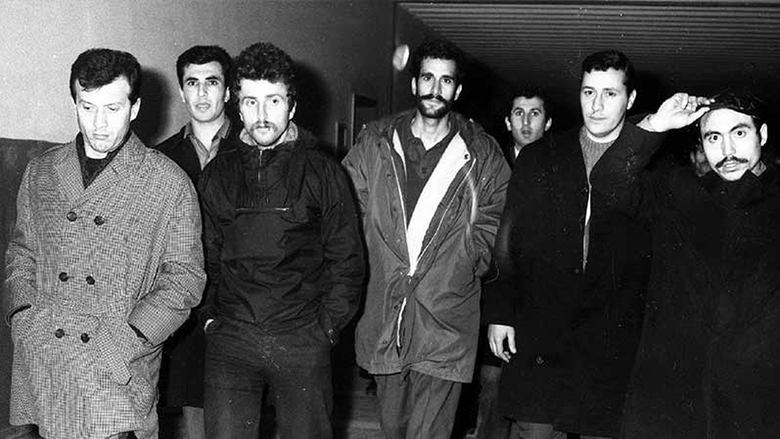
The slogan "Great Türkiye" began to be heard for the first time in the mid-60s. The Turkish economy had become unstable and stagnant at the hands of military interventions and the provisional government. After 1965, the system began to settle. The economy's also recovered. With the 2nd Development Plan, the wheels of a liberal economy were turned. On the 1 hand, private sector incentives, big projects such as Keban Dam and Bosphorus Bridge. Electricity was going to the villages, Turkey was getting its share from the growth in the world, the country was "doubling up" in the words of the prime minister. Inflation was five percent. Demirel, who rushed from one groundbreaking ceremony to the next, had nothing to say. Of course, this vitality was also reflected in social life. Unions, associations, universities were fidgety. The world and Türkiye were going to 1968 at full speed. The year that gave its name to a generation in the history of the world and Turkey; 1968 had come...
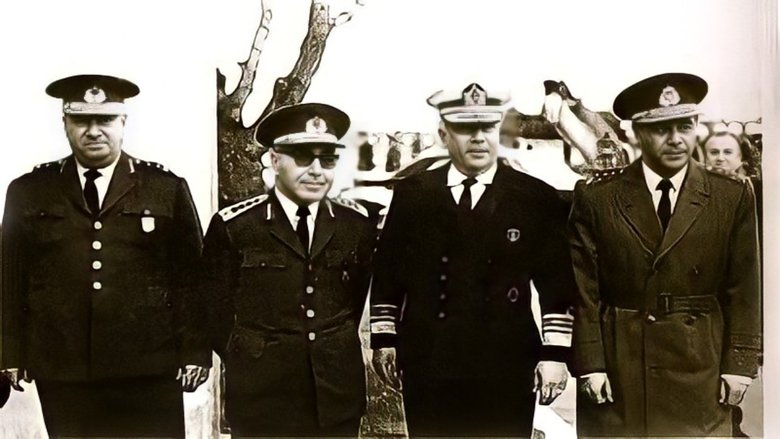
When March of 1971 knocked on the door, a military intervention was imminent in the country. Bombs were exploding in a strange way from right to left, and the urban guerrilla was resorting to unconventional acts such as bank robbery and kidnapping. The generals had decided to put a stop to this trend. Dynamite was placed under Prime Minister Demirel. The question now was who would ignite the fuse of the dynamite. President Sunay was waiting to watch the approaching explosion silently from Çankaya. Tuğmaç, Chief of General Staff, tried to delay the explosion as much as possible, preferring Demirel to self-destruct. The two generals were watching each other to see who would ignite the fuse first. These two generals were Faruk Gürler and Muhsin Batur. The fire was in their hands. They were going to detonate the dynamite...